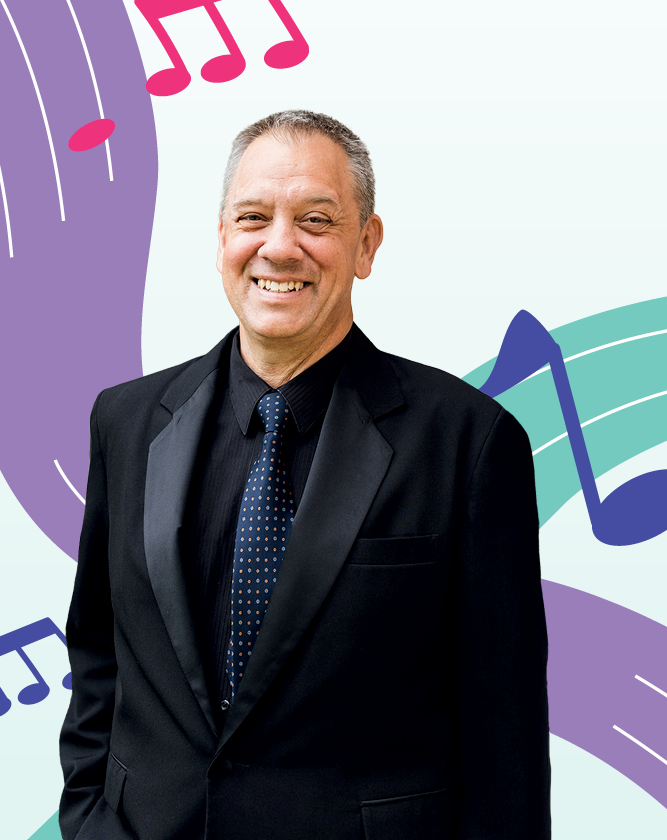Messiah professor composes symphony for Yale University
 Q: How does a Messiah professor end up composing a “happy” symphony for Yale University?
Q: How does a Messiah professor end up composing a “happy” symphony for Yale University?
A: By listening to a “happy” podcast.
For Jim Colonna, associate professor of music and director of bands, it was almost that simple. He composed his first symphony, “Pursuit of Happiness,” after he noticed a lack of optimism in the published pieces of young composers.
“I looked around and said, yeah, I have bad days, too, but I focus on all the wonderful things that are in my life instead of all the things that aren’t,” he said.
After listening to “The Happiness Lab” podcast, hosted by Yale professor Laurie Santos, Colonna was inspired to contact Yale’s band director to discuss the symphony. Yale offered a commission for the piece.
“The Pursuit of Happiness” premiered at Yale in November and has been played at Penn State and Arkansas Tech, with plans for spring performances at San Diego State, University of Northern Colorado and the University of Las Vegas.
“I am 54 years old, and nothing that I’ve ever written has gone this crazy. It’s hard to keep up with because I have to figure out how to travel to these places, mail everything out and send out things through email. It’s a joy, it’s a task, but it’s a task I wouldn’t trade,” said Colonna.
Although he began composing music at the age of 13, Colonna says this is his first symphony, which took more than six months to write. Written in four movements, the symphony covers 1) the things he loves, such as cycling and heavy metal, 2) the people he loves, 3) play and finding joy and 4) to be eternally in the present. When Colonna experienced writer’s block in the third section of the first movement, Andrew Morgan, a composition student, suggested moving a note down. After Colonna implemented this advice, the music flowed. After writing 85 pieces of music, he says this symphony is his favorite.
Colonna says he is grateful for the support of his Messiah colleagues.
“There are some places where faculty and music are very jealous of each other, but at Messiah, the faculty are saying, ‘Look at you. This is great. Soar. Do it.’”
Through his pieces, he says he wants his audience to feel the music from their seats and feel actively engaged — or, in the case of his symphony, happy.
“Music to me is incredibly powerful, spiritual and aesthetic,” said Colonna.
—Emily Groff ’26